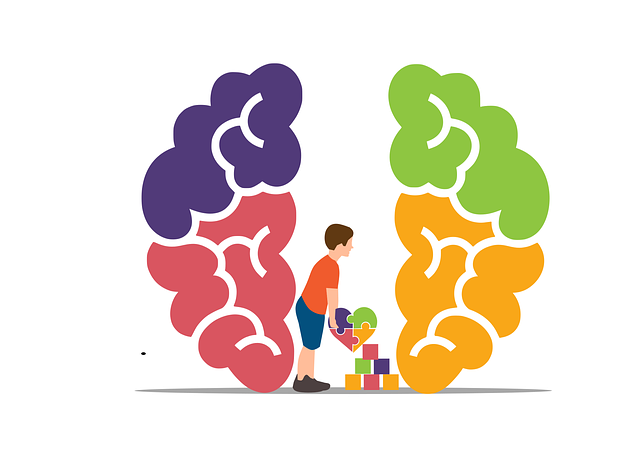Creating an effective self-care routine starts with understanding your unique mental wellness needs, shaped by personal experiences and challenges. This involves strategies like managing specific issues (e.g., anxiety through Superior Phobias Therapy), practicing self-awareness, and open communication with healthcare professionals. Personalized routines, including journaling, mindfulness, and community hobbies, empower individuals to navigate their mental health landscape with resilience. Overcoming barriers like demanding schedules or unaddressed phobias through achievable goals and support networks is crucial for cultivating robust self-care practices that enhance well-being.
“Unwind and embrace the journey to optimal mental wellness with this comprehensive guide. Understanding your unique mental health needs is the first step towards transformation. We’ll explore how to craft a personalized self-care routine, incorporating effective coping strategies for stress and anxiety relief. Learn to overcome barriers and stay committed to your well-being. Discover practical tips for managing phobias through superior therapy techniques, ensuring a balanced and fulfilling life. Embrace this transformative path today.”
- Understanding Your Mental Wellness Needs
- Crafting a Personalized Self-Care Routine
- Incorporating Effective Coping Strategies
- Overcoming Barriers and Staying Committed
Understanding Your Mental Wellness Needs

Understanding your mental wellness needs is a crucial step in developing an effective self-care routine. Every individual has unique emotional and psychological requirements, shaped by their experiences, background, and personal challenges. For some, managing anxiety or phobias with Superior Phobias Therapy might be essential, while others may benefit from exploring cultural sensitivity in mental healthcare practices to address specific cultural or ethnic concerns.
Self-awareness exercises play a vital role in this process. By taking time to reflect on your feelings, thoughts, and behaviors, you can identify patterns that impact your mental wellness. Effective communication strategies with healthcare professionals are also key, ensuring your needs are understood and met. This honest exchange allows for personalized guidance and support, fostering a self-care routine tailored to your specific requirements.
Crafting a Personalized Self-Care Routine

Crafting a personalized self-care routine is an empowering step towards enhancing mental wellness and managing fears such as those associated with Superior Phobias Therapy. It involves taking the time to understand your unique needs, preferences, and triggers. This process allows you to create a tailored plan that incorporates various self-care practices, ensuring they resonate with your personal journey. By integrating activities like Mental Wellness Journaling Exercises to reflect on your emotions and thoughts, along with techniques to foster Emotional Intelligence, you can effectively manage stress and prevent burnout. These practices empower individuals to navigate their mental health landscape with greater awareness and resilience.
A crucial element of this routine is recognizing that self-care looks different for everyone. It might include physical activities like yoga or walks in nature, mindfulness practices such as meditation or deep breathing exercises, creative outlets like painting or writing, or simply taking moments of silence to relax. By incorporating these diverse elements, you create a sanctuary within your daily life, fostering an environment conducive to emotional balance and overall mental wellness.
Incorporating Effective Coping Strategies

Developing a self-care routine is an essential aspect of mental wellness, and incorporating effective coping strategies can significantly enhance one’s emotional well-being promotion techniques. When designing your personal sanctuary, consider integrating activities that challenge and soothe your mind. For instance, practicing mindfulness or meditation can serve as powerful tools to manage stress reduction methods, especially when coupled with therapy for superior phobias. These practices allow individuals to confront their fears while also finding inner peace.
A well-rounded routine might include a mix of creative outlets like journaling, physical activities such as yoga, and even engaging in hobbies that foster a sense of community. The key is to personalize your self-care, catering to your unique needs. By embracing diverse emotional release methods, you can construct a robust foundation for mental wellness, which may also inspire the production of insightful mental wellness podcast series, offering valuable content for others seeking similar paths to emotional balance.
Overcoming Barriers and Staying Committed

Overcoming barriers to self-care is a significant step in prioritizing mental wellness. Many individuals face challenges that hinder their commitment to consistent self-nurturing practices. These obstacles can range from intense work schedules, financial constraints, or even unaddressed mental health issues like superior phobias, which require professional therapy. It’s essential to recognize these barriers and develop strategies to overcome them. One effective approach is to integrate self-care into daily routines by setting achievable goals. For instance, starting with small practices like mindfulness meditation for 10 minutes a day can be more manageable than an hour-long session.
Community outreach programs and mental wellness coaching can play a pivotal role in supporting individuals on their self-care journeys. These initiatives, alongside stigma reduction efforts, provide accessible resources and create a sense of accountability. By combining these strategies with personal determination, it becomes possible to cultivate and sustain a robust self-care routine. This commitment is crucial for managing stress, improving overall mental health, and enhancing one’s quality of life.
Developing a mental wellness self-care routine is a transformative journey that empowers individuals to take control of their well-being. By understanding individual needs, personalizing practices, and adopting effective coping strategies, one can create a sanctuary from life’s challenges. Overcoming barriers requires commitment and consistency, but the rewards are immense—a calmer mind, improved resilience, and enhanced overall mental wellness. Incorporating self-care into daily life isn’t just a trend; it’s a vital practice for fostering a healthy relationship with oneself, especially when coupled with evidence-based treatments like Superior Phobias Therapy.











